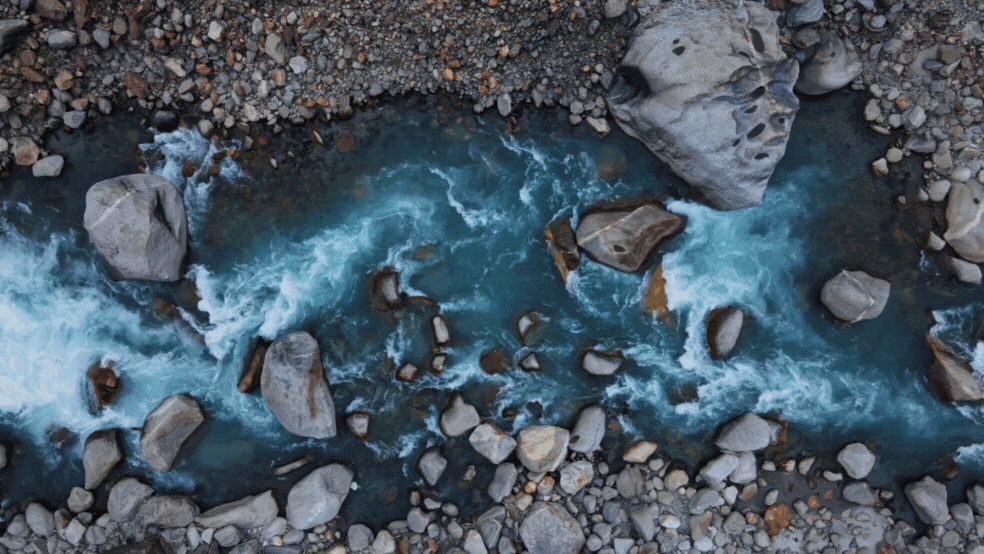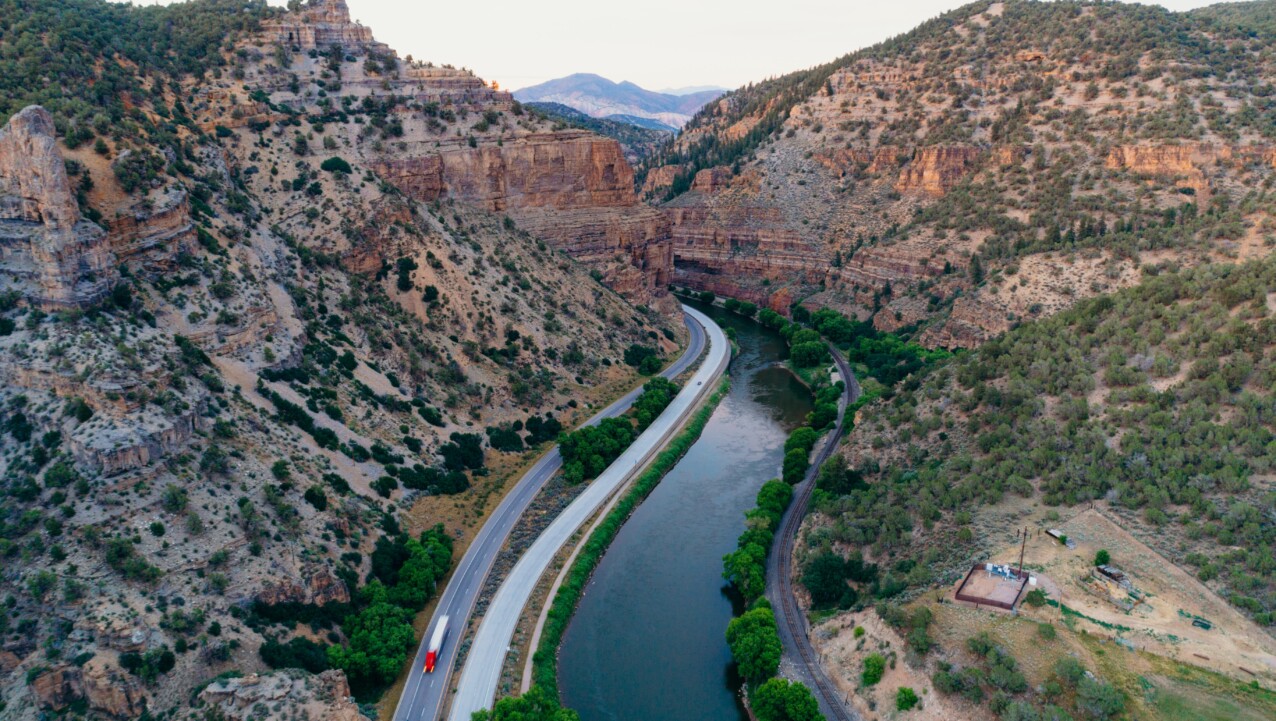April 27, 2023
We’re at a tipping point for Colorado’s water future. While some are encouraged by a wet year and higher-than-average snowpack, in our boom-or-bust precipitation cycles, the experts wisely recognize that this wet year is an anomaly in what will be an increasingly dry future. To prepare for this future we must start adding new tools for managing and conserving water now.
The Colorado River Basin is in crisis. Decision making over the last 100 years over-allocated the limited water available in the river. In recent decades, diminishing snowpacks have decreased the amount of water flowing in the river to historic lows. The ever–increasing demand for water and decreasing supply from years of drought is exasperating an already overdrawn account. What’s more, climate change is continuing to impact the state, resulting in dried-out rivers, dwindling reservoirs, and more frequent floods and wildfires.
Coloradans recognize the urgency of these issues: In the 2023 Conservation in the West Poll, 87% of Coloradans describe the current water shortage in the West as a problem, and 77% believe the Colorado River needs urgent action.
We must take steps now to avoid a water crisis in Colorado – and the 2023 legislative session offers an opportunity to do just that. Acting now creates a compounding effect that ensures a sustainable water supply for the drier years we’ll face down the road. Instead of scrambling to save every drop during dry years, we should set up systems that allow for greater water resilience in all years: wet, dry, and in-between. Forward thinking and planning is needed.
We can implement policies that mitigate the impacts of drought and climate change and ensure our state is using its water resources wisely. And we need to act now. Our ecosystems, economies, and the communities that are home to more than 5 million Coloradans who need water to live, work, and play, can’t wait another year.
Colorado’s 2023 legislative session offers an opportunity to protect the health of our rivers and communities. WRA is supporting two bills currently working their way through the legislative process that will make Colorado’s water future more secure while improving the health of our rivers and streams. Through building alliances, WRA collaborated with non-traditional partners, including water conservation districts and agricultural organizations, to find common ground on legislation that would provide security against drought to all of Colorado.

Senate Bill 23-295: Colorado River Drought Task Force
Sponsors: Sen. Dylan Roberts & Sen. Perry Will | Speaker of the House Julie McCluskie & Rep. Marc Catlin
SB 23-295 is a bipartisan bill establishing a task force to address the historic drought conditions and diminished water supplies from the Colorado River. New and more flexible tools are needed to help Colorado communities that depend on our rivers, to respond to these threats, and to address climate change. Without clear action in the immediate future, these problems will only get worse. The Colorado River Drought Task Force would meet starting in July 2023 through the end of the year to make legislative recommendations to:
- Proactively address climate-driven drought impacts on the Colorado River and its tributaries.
- Avoid disproportionate economic or environmental impacts to any region of the state, ensuring acquisition of agricultural water rights is voluntary, temporary, and compensated.
- Provide for collaboration among Colorado Conservation Districts and the State of Colorado in the design and implementation of drought security programs;
- Evaluate sources of revenue for the acquisition of program water; and
- Recognize the uniqueness of Tribal water rights and water use so that sovereign Tribal nations may participate.
SB23-295 also creates a sub-task force, which includes representatives of the Southern Ute Indian Tribe, Ute Mountain Ute Tribe, and the Colorado Department of Natural Resources, to ensure that Tribal water matters have appropriate space and time for their consideration.
The task force brings together a right-sized group of stakeholders for a focused and solutions-based discussion over the summer and fall, drawing from the knowledge and perspectives of
- Farmers and ranchers;
- Conservation Districts from across the state;
- Front Range water providers that pull water from the Colorado River;
- The Southern Ute and Ute Mountain Ute Tribes;
- Conservation groups;
- Industrial water users; and
- Officials from the State of Colorado
This task force would bring water resource stakeholders to the table and could serve as an important example for future collaboration on Colorado River issues. This bill would be a critical step forward for Colorado’s ability to manage water. Building toward drought security — through new and more flexible legal tools — is essential to our state’s long-term wellbeing and would move the state back into a leadership role throughout the Colorado River Basin and the West.

Senate Bill 23-270: Concerning Activities that Restore the Environmental Health of Natural Stream Systems without Administration
Sponsors: Sen. Dylan Roberts & Sen. Cleave Simpson | Rep. Karen McCormick & Rep. Marc Catlin
Colorado is lucky to have over 100,000 miles of rivers and streams that play a critical role in our environment, health, economy, and recreation. But destructive wildfires and other human activities have degraded once healthy and flourishing riparian ecosystems for many of these waterways, resulting not only in adverse impacts to the environment but increased threat to public safety through increased vulnerability to drought, future fires, and destructive stream flows.
Past work has shown stream restoration projects to be greatly successful in improving drought, flood, and fire resilience without negative impacts to other water interests. Yet, many potential projects across Colorado have been shelved because of confusion and lack of clarity over whether and to what extent there needs to be administration of such projects within Colorado’s water rights system.
SB 23-270 offers a solution to these challenges for the state’s rivers and streams. It will provide clarity and consistency across the state to ensure many stream restoration activities continue to occur without unnecessary water rights enforcement actions, positioning Colorado to access once-in-a-generation federal funding essential to the State’s efforts to support watershed and river health and guard against future drought, floods, and wildfires.
Without strong stream restoration support, Colorado’s rivers, communities, and wildlife habitats will face an uncertain future. This bill is a good first step towards healthier streams while respecting water rights.
Colorado can’t afford to delay action to secure our water future and restore the health of our rivers and streams. The climate crisis is here, and the state needs to mitigate its impact on our environment and water supply. WRA is driving water solutions that will allow communities to thrive, even in a hotter and drier climate.





